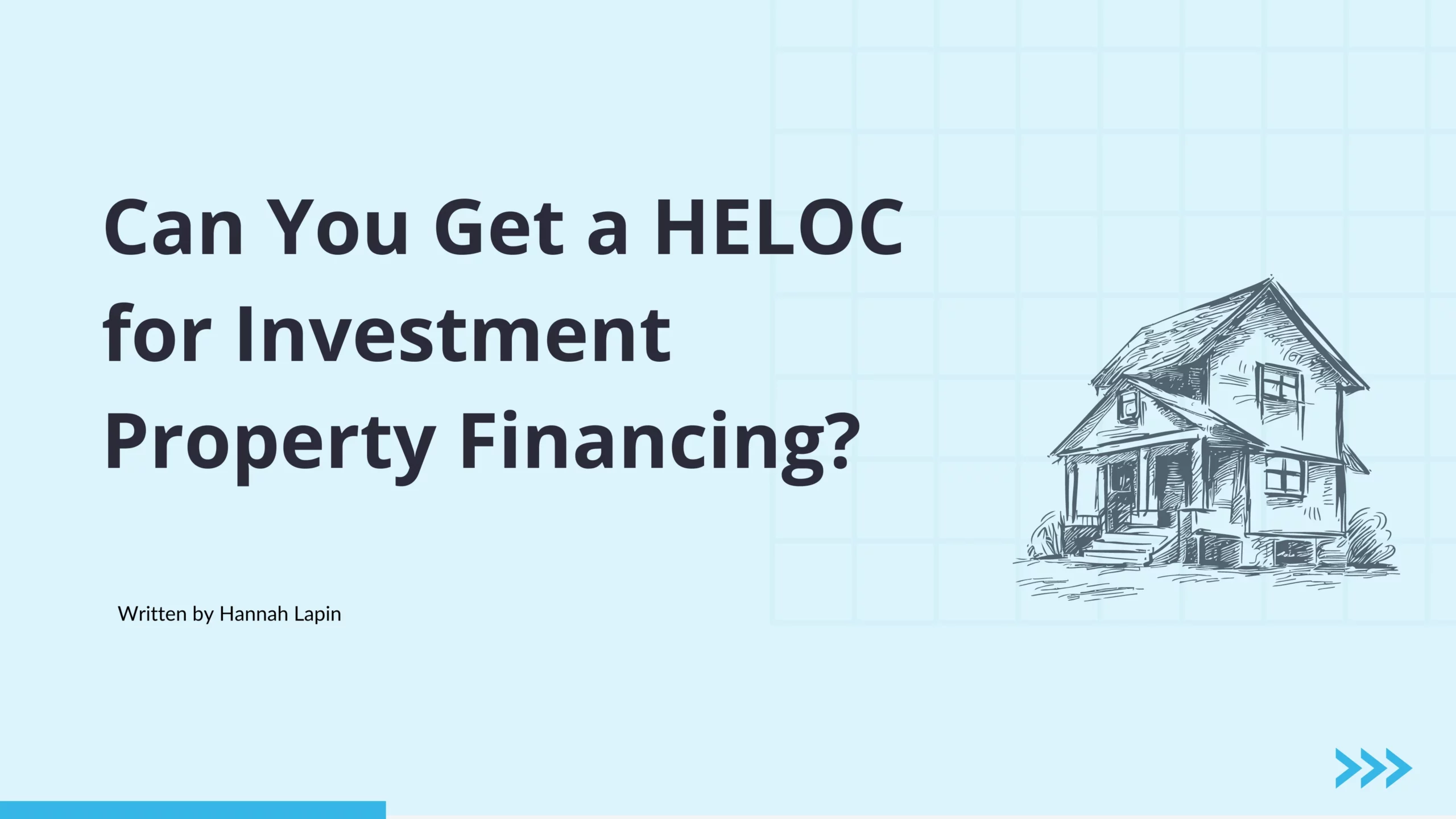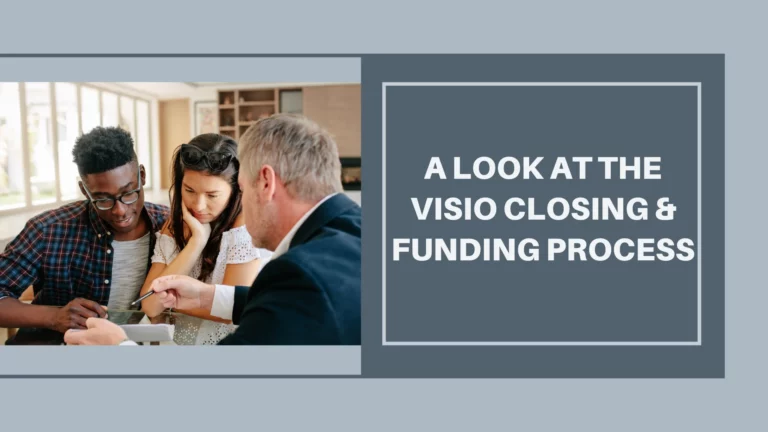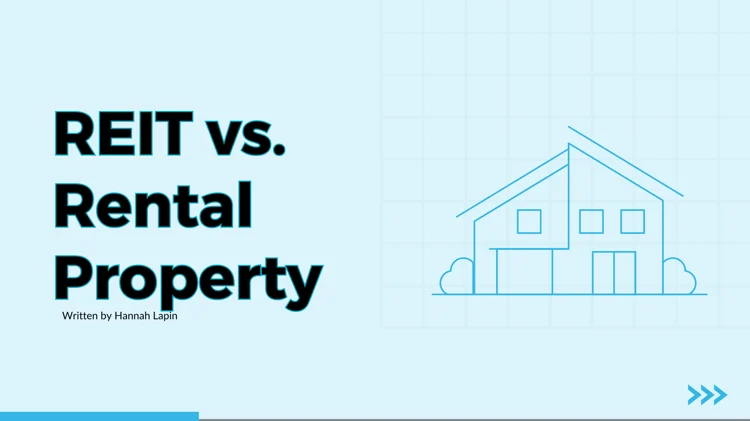A home equity loan lets you borrow cash based on the equity you have earned on the property, and many investors wonder if they should use this money to finance an investment property. In this article, we will discuss the lending requirements for HELOCs, when they are useful to real estate investors, why you shouldn’t take them out, and what alternatives there are.
Home Equity Line of Credit (HELOC) for Investment Property-Lending Requirements
You can take out a HELOC on a primary residence or on an existing investment property. When you take out a line of credit on an investment property, you do not endanger your primary residence in case of default. However, investment property HELOCs are harder to find and obtain, as they have stricter requirements.
Credit Score
Most credit unions, banks, and lenders want to see credit scores of 680 or greater to approve home equity lines of credit — if you’re taking it out on your primary residence.
Investors who want to take out HELOCs on investment properties often have to have a credit score of at least 720. Some lenders may accept a lower score, but the interest rate may be higher to reduce risk to the lender.
Debt-to-Income Ratio
This ratio is a reflection of how much debt you have and how much income you bring in on a monthly basis. In general, a reputable lender will only approve a home equity line of credit if you have a DTI of 43% or less. If it’s any higher, you may be considered too risky to lend money to.
Loan-to-Value Ratio
LTV is a metric that mortgage lenders use to assess the risk involved in a particular loan, showing how much of the property’s equity they are financing. To qualify for this loan type, you need to have enough equity in your home.
The highest mark that lenders will allow for a HELOC or home equity loan on your own home is usually 85%, while the requirements for investment property HELOCs require an LTV of 80%.
Occupancy
If you’re taking out a home equity line of credit on a primary residence, you need to live in the house. Similarly, if you’re taking it out on an investment property, you need to have a tenant occupying the place, and you’ll need to show a history of consistent rental income.
Cash Reserves
Primary home lines of credit typically do not require significant personal cash reserves, only an insight into your finances. However, if you want to take out a HELOC on an investment property, lenders may require you to have significant cash reserves, usually enough to cover 18 months of expenses.
Why Should You Get a HELOC?
A HELOC is a fast and reliable way to get some extra cash. There are several circumstances when it makes sense to open up a credit line to take advantage of the equity you have built.
When Home Values Are High
Real estate property prices usually appreciate with time. The market can also have a positive impact on the value of your property, even if you have not invested in significant upgrades.
The higher the value of your investment property, the more equity you can borrow from. Monitor the markets and the assessed value of your property frequently to take advantage when the value rises.
When the Property Needs Repairs
Regular maintenance and repairs can cost a lot of money, and you need to protect the value of your property. Fortunately, with a HELOC, you can borrow against your property’s equity to pay for those expenses without going straight into your bank account.
When You Want to Make Capital Investments
If you plan to increase the value of your property through investing in renovation or furnishing the home better, with the plan to raise the value of your property, keep or attract tenants, or earn more by increasing rent, it makes sense to take out a HELOC. This may also come with certain tax benefits.
When You Have a Financial Emergency
If you have medical bills or another urgent situation to take care of, a HELOC can be a safe and reliable way to access cash held in your assets.
When Not to Take Out a HELOC
Some homeowners or investors may discover the concept of a HELOC and immediately want to take advantage of this borrowing power. Perhaps this sounds like an attractive idea to finance a new investment property. However, using your property to borrow cash is not always beneficial, and it could increase your debt obligations more than you think.
They’re Riskier
HELOCs are riskier than personal loans and home equity loans because they come with variable interest rates. That means the interest you owe on the money borrowed could fluctuate from month to month. This can result in higher payments than you expected throughout the repayment period.
Additionally, a HELOC is a secured loan, which means you are pledging your home or investment property as collateral to the lender. If you default on your payments, the lender could seize the asset.
Stricter Lending Criteria
Opening a home equity credit line is also difficult to do, often more so than acquiring other types of loans. The requirements are far more strict than the usual mortgage, with higher credit score standards, lower DTI requirements, and an in-depth look at your finances.
It might be easier to finance your investment property another way if you are struggling to meet the criteria required for a HELOC.
Alternatives to HELOC
Fortunately, using a HELOC on an investment property or primary residence is not the only way to build your portfolio. Several financing solutions may be a better fit for funding your next investment properties. Let’s talk about how you can obtain a rental property without taking out a whole new mortgage loan.
Home Equity Loan
There is one major difference between a HELOC and a home equity loan. HELOCs can be borrowed from at any time and on multiple occasions during the initial draw period so long as you remain under the credit limit. A home equity loan is a one-time event that lets you borrow a lump sum amount, repaying it over time.
You apply for the amount you need and then pay it back, often with a fixed interest rate. This might be a safer option if you know how much money you need for an investment property down payment or to consolidate debt.
Cash Out Refinance
There is another way to use your home equity to secure funds for investment properties — cash-out refinancing. A cash-out refinance occurs when you replace your current home loan with one that has a higher balance. The difference between these two is given as cash that you can use.
For example, perhaps you have lived in your primary residence for many years, and you only owe $50,000 on the principal. With a cash-out refinance, you can replace that loan with a new one for $100,000, which gives you $50,000 in cash to work with. However, there are usually closing costs and other fees that would decrease that amount.
DSCR Loans
A debt-service coverage ratio loan is the perfect way to finance rental properties. Rather than being approved based on your income, a DSCR loan broker will evaluate the projected income of the rental property in question to determine whether the loan is approved.
Though they will also look at your cash reserves and debt-to-income ratio, a property that has a great rental income history is more likely to be approved for DSCR financing.
Other funding methods are available for your real estate investment if you are not interested in using a
HELOC on an investment property or your home. You could go with conventional financing through home loans from a bank, credit union, or private lender.
If you know other investors through personal connections, it is possible to secure financing from individuals or real estate investing groups who want a piece of your rental income.
Figuring out how to pay for your next investment property depends on your goals for the property, your current income situation, and the structure of your debt repayment plan. Whether you choose an unsecured personal loan, a home equity loan, or a HELOC, the financing method will impact your long-term financial goals.
Can I take a HELOC on an investment property?
If you own an investment property and you have some equity to work with, this could be a great option to finance repairs, upgrades, or a down payment for the next investment property. On the plus side, this debt is tied to the investment property rather than any primary residences and can be paid through rental income.
However, fewer lenders offer investment property HELOCs and those that do usually have very strict requirements for approval. It is important to research whether opening a HELOC on your investment property makes sense before doing so.
Can you take out a HELOC to invest?
A primary residence HELOC is a great way to get started on your investing journey. It provides you with quick access to cash whenever you need it up to a certain amount, and that cash can be useful for an investment property down payment.
If you decide to upgrade that investment property or repairs are needed, you can return to your credit line for those funds. As mentioned before, you could also open an investment property HELOC on an investment you already own if you want some cash to invest in another rental property.
Is it worth getting a HELOC?
It depends on what you plan to use it for. Opening a HELOC is a simple process, though the standards can be strict. For many property owners, the risks are well worth it for the benefits. You can borrow money from this credit line at any time during the borrowing period, which often lasts for ten years.
As long as you make your payments on time, you can continue to borrow from that credit line. This ability to withdraw money can help you consolidate debt, finance rental properties, invest in repairs and upgrades, or make other large purchases.
Is there a better option than a HELOC?
In many scenarios, a home equity loan or cash-out refinance might make more sense for your goals. If you want a predictable repayment structure and just need money for a one-time purchase, home equity loans with fixed interest rates are ideal.
A cash-out refinance can accomplish something similar, though with cash in your pocket and a whole new loan replacing the old one. Make sure to explore all financing options before you take out a HELOC.






